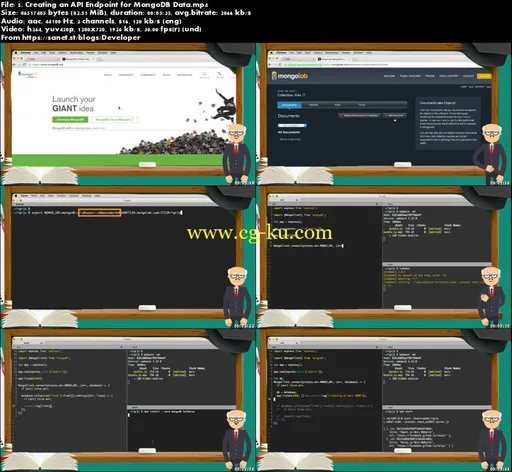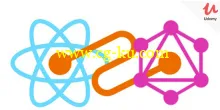
MP4 | Video: h264, 1280x720 | Audio: AAC, 44.1 KHz, 2 Ch | Duration: 3h 8m | 2.67 GB
Genre: eLearning | Language: English | Level: | + Exercise Files
Build a full-stack JavaScript web application from scratch using React with Flux/Relay on the frontend and Node/Express
What Will I Learn?
Understand the working of a GraphQL server in a language agnostic way
Create your own GraphQL API with a blog
Implementing scaling/pagination for a GraphQL API coupled with Relay client
Use React and Relay with GraphQL backend.
Test a client and GraphQL backend
Write test cases for backend and frontend
Requirements
Some familiarity with React or Node. js is expected.
Description
In this course, we create a React.js application on top of an Express.js project on Node.js. We'll have our data stored in MongoDB and exposed with a GraphQL endpoint on the server. For the clients on the frontend, we'll see examples of how to work with data using the Flux pattern first, then using the Relay.js framework. We'll be using Babel and Webpack in this project, and we'll install all our dependencies with npm. The application we will be building is a list of educational resources about React, GraphQL, and Relay. Users can add new resources and browse and search the list.
GraphQL is a query language for APIs and a runtime for fulfilling those queries with your existing data. GraphQL provides a complete and understandable description of the data in your API.
In this course, we will learn about GraphQL and how we can use it to create truly decoupled client and server. Writing backend with GraphQL makes our code more declarative wherein the client demands certain data in a particular format and the server responds in a predictable manner. This enables us to evolve our API without versions and iterate on features faster. For front-end and networking, we will use Facebook’s React and Relay respectively. We will learn GraphQL by creating a backend for a blog platform. You will learn about GraphQL schema design, authentication, pagination, testing, query batching and more and how to connect a GraphQL backend to React and Relay client. The course will teach everything to get up and running with GraphQL and React.
Who is the target audience?
This course is intended for developers interested in learning GraphQL.

发布日期: 2018-05-04